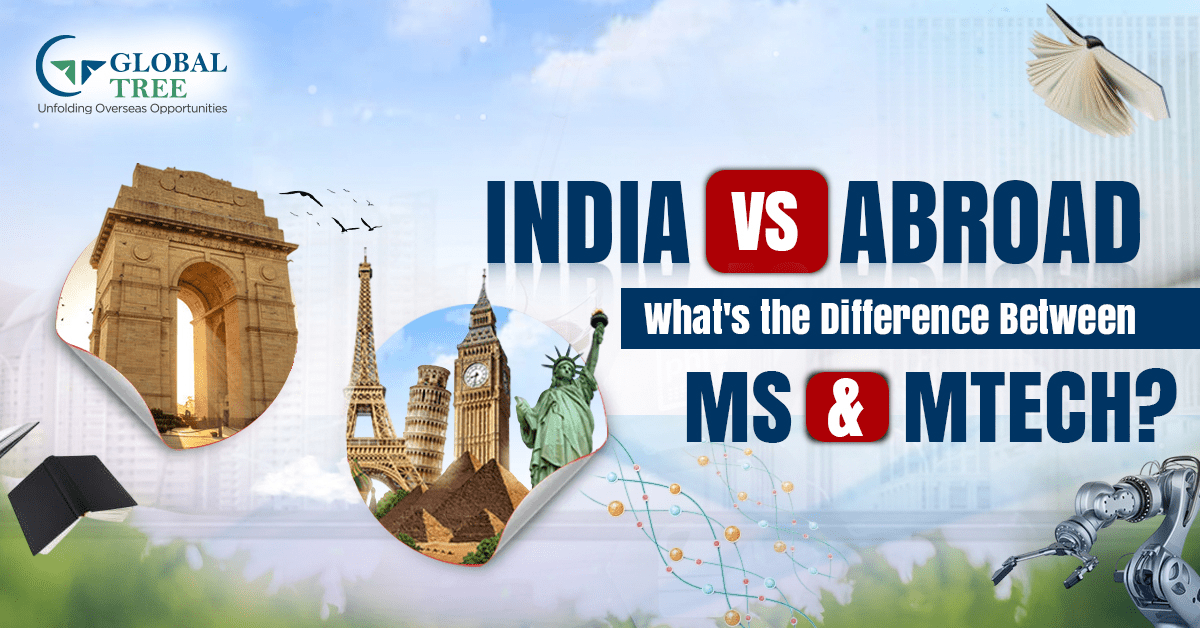Exploring the Best Exams After 10th to Shape Your Future

Understanding the Importance of Choosing the Right Exams After 10th Grade
The proper exam after 10th Grade is a critical choice that will influence your future. If you're considering competitive exams after the 10th Grade or are considering competitive government examinations, it's crucial to make educated choices. In the past few years, there has been an increasing number of students pursuing the best courses after the 10th Grade, such as engineering and medicine, law, or business, according to their career interests and goals.
The most recent statistics show that more than 20 lakh students take JEE and NEET examinations each year, demonstrating the level of competition these fields have become. Knowing what you need to do after the 10th Grade can help you to find the right path based on your strengths. If you're interested in the government sector, exams such as UPSC, SSC, or railway recruitment might be the perfect choice. Making the right choice will ensure that you're not following the popular path and not one that fits your ambitions and capabilities.
Read More: Science, Arts or Commerce: Which is the right fit for you?
Overview of Popular Entrance Exams Available Post-10th
| Exam Nam | Streams | Purpose | Popular Among | |
|---|---|---|---|---|
|
CLAT |
Must have passed 10th |
Law (5-year integrated LLB) |
Admission to prestigious law universities like NLUs for a career in law. |
Aspiring lawyers |
|
KVPY Exam |
Must have passed 10th with Science subjects (Physics, Chemistry, Maths, Biology) |
Science (Research, Engineering, Technology) |
A scholarship and research program to nurture young scientists. |
Students interested in science and research |
|
National Talent Search Examination (NTSE) |
Must have passed 10th |
General Studies, Science, Arts, and Humanities |
A prestigious scholarship program for top students in academics, helps in career guidance. |
Academically gifted students |
|
NSTSE (National Level Science Talent Search Examination) |
Must have passed 10th |
Science (Physics, Chemistry, Biology) |
A competitive exam to identify scientific talent and offer scholarships. |
Students passionate about science |
|
NDA Exam |
Must have passed 10th (for entry into Army, Navy, and Air Force) |
Defence Services |
Recruitment for Indian Army, Navy, and Air Force after 10+2; requires physical fitness. |
Students interested in defence services |
|
Science Olympiads (NSO, IMO, IEO, etc.) |
Must have passed 10th |
Science (NSO), Mathematics (IMO), English (IEO) |
National and international level competitive exams for science, math, and English talent. |
Students with aptitude in science, math, and language |
|
Polytechnic Common Entrance Test (POLYCET) |
Must have passed 10th with Maths and Science |
Diploma courses in Engineering & Technology |
Admission to polytechnic colleges for diploma programs in engineering and technology. |
Students opting for diploma-level engineering courses |
|
ITI Entrance Exam |
Must have passed 10th |
Various technical trades (Electrician, Fitter, etc.) |
Provides admission to Industrial Training Institutes for technical courses. |
Students wanting hands-on technical skills |
|
SSC (Staff Selection Commission) |
Must have passed 10th |
Government Services |
Entry for various government posts like clerk, assistant, and multi-tasking roles. |
Students aiming for central government jobs |
|
Railway Recruitment Board (RRB) |
Must have passed 10th |
Government Services |
Recruitment for posts in Indian Railways such as Station Master, Ticket Collector, etc. |
Students interested in government sector jobs |
|
State-Level Board Exams |
Must have passed 10th |
Multiple fields (Arts, Science, Commerce) |
State-level exams to get admission to various government or private colleges for further studies. |
Students who prefer studying in state universities |
What are the Key Factors to Consider while Selecting Exams?
Choosing the best exam for your 10th class is crucial since it determines the direction of your career. Below are the five most important factors to take into consideration helping you make an educated selection:
1. Identify Your Career Interests
- What you do after the 10th depends on the areas you are interested in. Are you looking to pursue the field of engineering, medicine, law, or even the public sector? In particular, if you're a scientist looking to become a medical doctor, the NEET test is an excellent choice. If you're interested in technology or pursuing a career in technology, the entry exam to earn a diploma at the end of the 10th, similar to the CET test after the 10th, may lead to an engineering career.
- Knowing the areas of study after the 10th can guide you to take exams that reflect your interests.
2. Explore Government Exams and Career Stability
- If securing a job in the public sector is your aim, 10th-based govt exams such as the SSC examination after the 10th is a great option. After the 10th test, the SSC exam offers openings in different government jobs, ranging from assistants to clerks. In 2024, SSC conducts examinations for 15 lakh people each year. This makes it an extraordinarily competitive but lucrative career choice.
- Many students opt for scholarships after the 10th Grade to help ease the financial burden as they pursue their dream positions or further studies.
3. Consider Scholarships and Financial Aid
- Scholarship tests are an excellent choice for pursuing further education after the 10th. They can assist in funding your studies, particularly when you're looking to enroll in an elite institution or attempt competitive exams, such as the JEE or NEET. For example, scholarships like the KVPY (Kishore Vaigyanik Protsahan Yojana) Scholarship aid bright students in pursuing career paths in research and Science.
- Please find information about these scholarship opportunities at the local bookstore for books on competitive exams close to me or through online sources.
(You may also like: Best Indian Government scholarships for study abroad)
4. Evaluate Exam Difficulty and Preparation Time
- Examinations for admission to students in 10th Grade, similar to JEE and NEET, are renowned for their lengthy preparation times, but if you're looking to find a more relaxing alternative, a vocational course that requires an entrance exam following the 10th Grade or an entrance test for certificates after the 10th could be more suitable.
- For instance, the CET examination after the 10th for polytechnic programs could open the door to various tech fields, with significantly less time to prepare than full-degree classes.
5. Plan Your Path to Success
- Selecting the most appropriate option after the 10th is to think about your future career objectives. Whether it's a 10th-grade form to be an engineer or SSC doesn't matter. After the 10th, your decision must align with where you'd like to be in the next few years. The most suitable option after the 10th will differ for every person, and it's essential to determine what will ensure you are most happy and satisfied in the end.
If you look at these five essential elements--career interest, government opportunities and scholarships, exam prep duration, and goals for the future--you'll be able to make a sound decision about which path to take after the 10th. Be aware that this is only the beginning. There are a lot of opportunities to explore!
(Suggested Read: Top Computer courses to pursue after 10th, 12th)
Conclusion
The right choice after the 10th Grade is essential to making your way in the future. If you're looking to pursue the fields of medicine, engineering, law, and government work, research the options available, know the areas of interest you are interested in, and match your interests with the tests and programs that fit the best for you.
Spend the time researching for guidance and consider the possibilities each route gives you. Make informed choices now and lay the basis for your career and academic success in the future.
Frequently Asked Questions About Exams After 10th
1. Which exam is best after the 10th?
The best exam after the 10th depends on your career goals. Some of the popular exams include:
- JEE (for engineering)
- NEET (for medical)
- NDA (for defense)
- CLAT (for law)
- SSC exams (for government jobs): Choose the one that aligns with your interests and plans.
2. How many competitive exams after the 10th?
There are numerous competitive exams like medical (NEET),engineering (JEE), medical (NEET), law (CLAT), defense (NDA), government jobs (SSC), and more after the 10th. The exact number depends on the field you want to pursue, but over 20 main competitive exams are available.
3. Which career is best after 10th?
The best career after 10th depends on your interests:
- Engineering: JEE exams
- Medical: NEET exams
- Law: CLAT exams
- Government jobs: SSC exams
- Defense: NDA exams Explore your passions and choose accordingly.
4. How do you enter NDA after the 10th?
To enter NDA after 10th, you need to be eligible for the following requirements:
- Appear for the NDA exam after completing the 12th.
- Meet the age requirements (16.5 to 19 years old).
- Complete the physical and medical fitness standards.
- After passing the exam, undergo training at NDA.
5. What is best after 10th Science?
After 10th in Science, you can pursue:
- Engineering (through JEE)
- Medical (through NEET)
- Research (through KVPY)
- Bachelor's in Science (B.Sc.) with specializations. Choose based on your interests in Physics, Chemistry, Biology, or Mathematics.
6. Can I take commerce or arts after 10th instead of science?
Yes, after 10th you can choose Commerce or Arts streams depending on your interests and career goals. Commerce is suitable for careers in business, finance, accounting, and management. Arts is ideal for those interested in humanities, social sciences, law, or creative fields.
7. What are diploma courses available after 10th?
Diploma courses after 10th include engineering diplomas, fashion designing, computer applications, hotel management, and animation. These courses usually last 2 to 3 years and are designed to provide practical, job-oriented skills. They offer a quicker route to employment compared to traditional degrees.
8. Is polytechnic a good option after 10th?
Yes, polytechnic institutes offer technical education focusing on practical skills. After completing a polytechnic diploma, you can directly join the workforce or gain lateral entry into the second year of engineering programs. It is a cost-effective and time-saving option.
9. Are there entrance exams for diploma courses after 10th?
Many states conduct entrance exams for diploma admissions such as JEECUP (Uttar Pradesh), DCECE (Bihar), and AP POLYCET. These exams help select students for government and private polytechnic colleges. Preparing for these exams is important to secure a seat in a reputed institute.
10. Can I start preparing for UPSC after 10th?
You cannot appear for UPSC exams immediately after 10th, as the minimum qualification is graduation. However, you can start building a strong foundation by reading newspapers, improving general knowledge, and enhancing language skills. Early preparation can help you in future stages.
11. Are there skill-based courses after 10th?
Yes, short-term skill development courses in areas like digital marketing, graphic design, programming, and electrical work are available. These courses are often certified by NSDC or similar bodies and can boost your employability. They provide hands-on training and practical knowledge.
12. What are ITI courses after 10th and are they useful?
ITI courses train students in specific trades like electrician, fitter, welder, or mechanic. These courses typically last 1 to 2 years and are very useful for quick entry into technical jobs. ITI diplomas are recognized by industries and often lead to stable employment.
13. Can I join the Indian Army after 10th?
Yes, you can apply for soldier-level posts such as Soldier General Duty or Tradesman after 10th through recruitment rallies. However, officer positions generally require 12th or graduation. The Army also offers technical posts depending on your qualification.
14. Is studying abroad an option after 10th?
Studying abroad after 10th is possible but less common and requires careful planning. Some countries allow students to continue their high school education or pursue diploma programs. You need to consider visa rules, finances, and suitable courses before applying.
15. How do I choose the right stream after 10th?
Choosing the right stream should be based on your interests, strengths, and future career goals. Consider taking career counseling or aptitude tests to better understand your preferences. Also, discuss options with teachers and family before making a decision.









